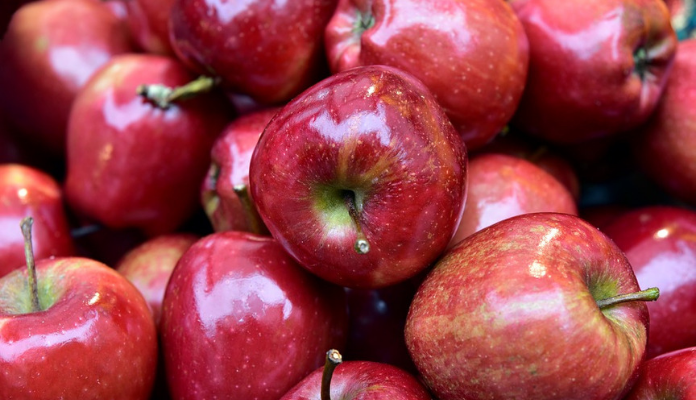Foods That Combat Allergies
Life is a continuous process of adjustment to our outer and inner environments. Seasonal or situational changes are often manifested in the body in the form of unbearable symptoms of an allergy. Allergic reactions can be open (visible skin rashes, itchy eyes, runny nose, etc.) or masked (osteoporosis, muscle pain, migraine, etc.) And though it is hard to pinpoint the many ways in which an allergy can be manifest, what is certain is the existence of an underlying problem.
Ignoring the problem only aggravates the immune system causing chronic stress and may provoke more serious conditions such as autoimmune disease, bowel issues, some types of cancer and chronic infections. Conventional medical treatment for allergies normally consist of allopathic medication such as antihistamines, steroids and desensitization shots. But though these offer temporary relief they do not correct the underlying cause.
A holistic approach is favourable for treating allergic disorders. This includes regular exercise, lots of water, a diet rich in fresh and seasonal fruits, vegetables, herbs and spices. This helps normalize the previous imbalances, restores digestive function and promotes overall wellness. Listed here are some nutritious foods that help reduce allergic reactions.
Foods That Help Reduce Allergies
- Black/Green Tea
These are very good for people with allergies. During allergic reactions the body releases chemical called histamine, which is responsible for the allergic response. Tea contains natural antihistamines, which helps reduce allergy symptoms. - Mustard
This condiment might be helpful in opening up your nose and helping you breathe better when you have allergy symptoms. However, this method is not guaranteed and sometimes the heat generated may be hard to tolerate. - Garlic
Supports the immune system and is a rich source of antioxidants. It also helps reduce allergic reactions. - Turmeric
This spice contains the active ingredient curcumin, which is a powertul antioxidant and anti-inflammatory substance. Research has shown that ingesting some amount of curcumin daily can have the same effect as anti inflammatory drugs. - Beets, Berries, Cherries, Dark Purple/Red Grapes
All these contain anti-inflammatory phytochemicals called anthocyanins. Consuming foods rich in anthocyanins helps reduce allergic reactions. - Green Vegetables
These contain a phytochemical called hesperidin and hesperetin which have antioxidant, anti-inflammatory, anti-carcinogenic and cholesterol-lowering actions, and also protect blood vessels against damage. They are also beneficial for allergies because of their antihistamine properties. - Apples, Onions, Cauliflower And Cabbage
This fruit and vegetables are excellent sources of quercetin. Quercetin is an antioxidant, anti-inflammatory and anti-histamine phytonutrient that has the ability to help control allergy symptoms. Quercetin also helps improve the body’s absorption of vitamin C with its immunity-boosting powers. This flavonol also helps to stabilize cell membranes so they’re less reactive to allergens. - Yogurt and Other Probiotics
These can help regulate the immune system so one will suffer from lesser symptoms of allergies. They stimulate the body to produce certain white blood cells and antibodies as well as various growth factors that prevent an allergic response. Probiotics can be obtained through the consumption of miso, fermented milk and dietary supplements. - Oregano, Lemon Balm, Rosemary And Other Herbs
All these contain anti-inflammatory ‘ volatile healing oil in their leaves. These oils with anti-inflammatory effects help reduce the symptoms of seasonal allergies. - Gluten-Free Grains Like Rice, Quinoa And Buckwheat
These grains are most suitable for people with allergies. Gluten Is responsible for many allergic conditions such as celiac disease, nasal congestion and skin rashes, The above grains are easy to digest, devoid of gluten and easily expelled from the gut. - Omega 3 Fatty Acids
Research indicates that consumption of omega 3 fats may reduce airway inflammation and thereby help in reducing asthma symptoms. Omega 3 fatty acids are found In fatty fish such as salmon, herring, sardines, mackerel, tuna and seeds and nuts such as flax, chia and walnuts.
Conclusion :
- It is recommended that one eat home cooked food and avoid raw foods or processed foods as the latter may trigger allergic reactions due to the presence of chemicals such as pesticides, additives and preservatives.
- Cooking food lessens one’s risk of developing allergy symptoms. So. switching from raw carrot to the cooked version may help.
- Also, plant enzyme therapy taken between meals helps decrease the toxic load in the gut arising from metabolic waste.
- Enzymes also decrease inflammatory reactions due to antibody reactions.
